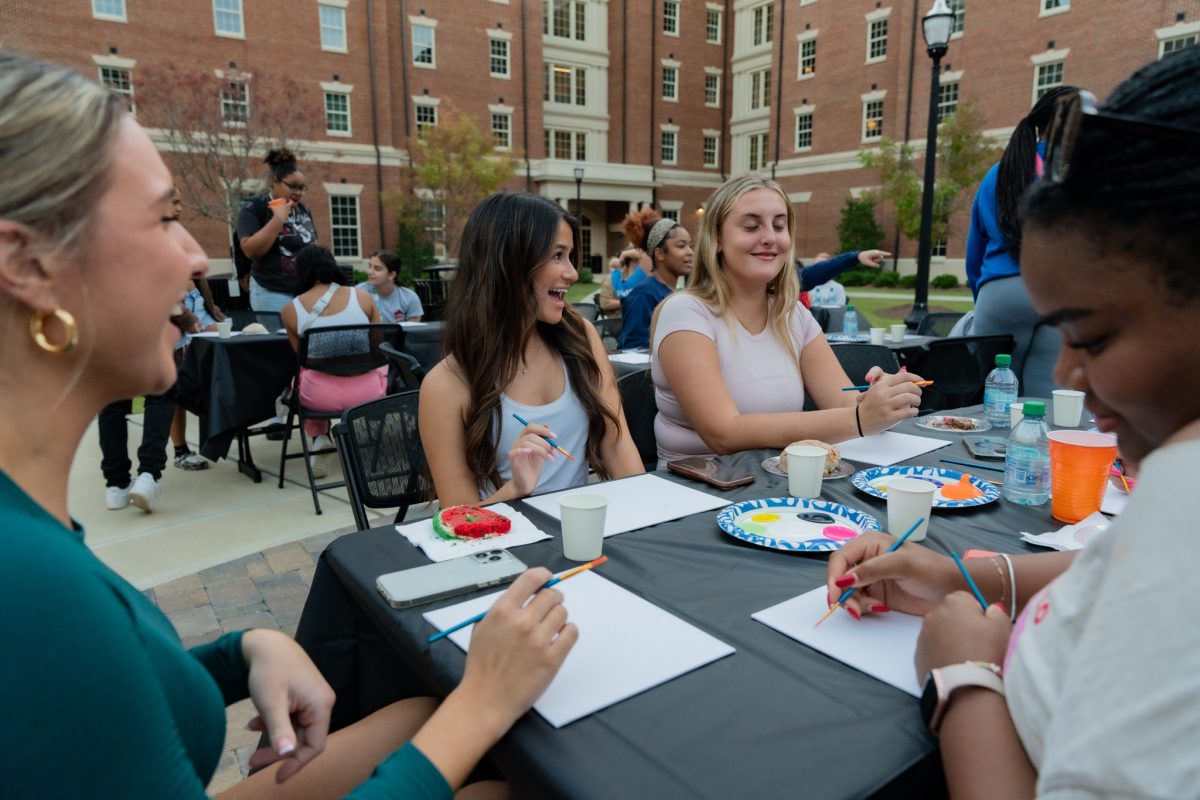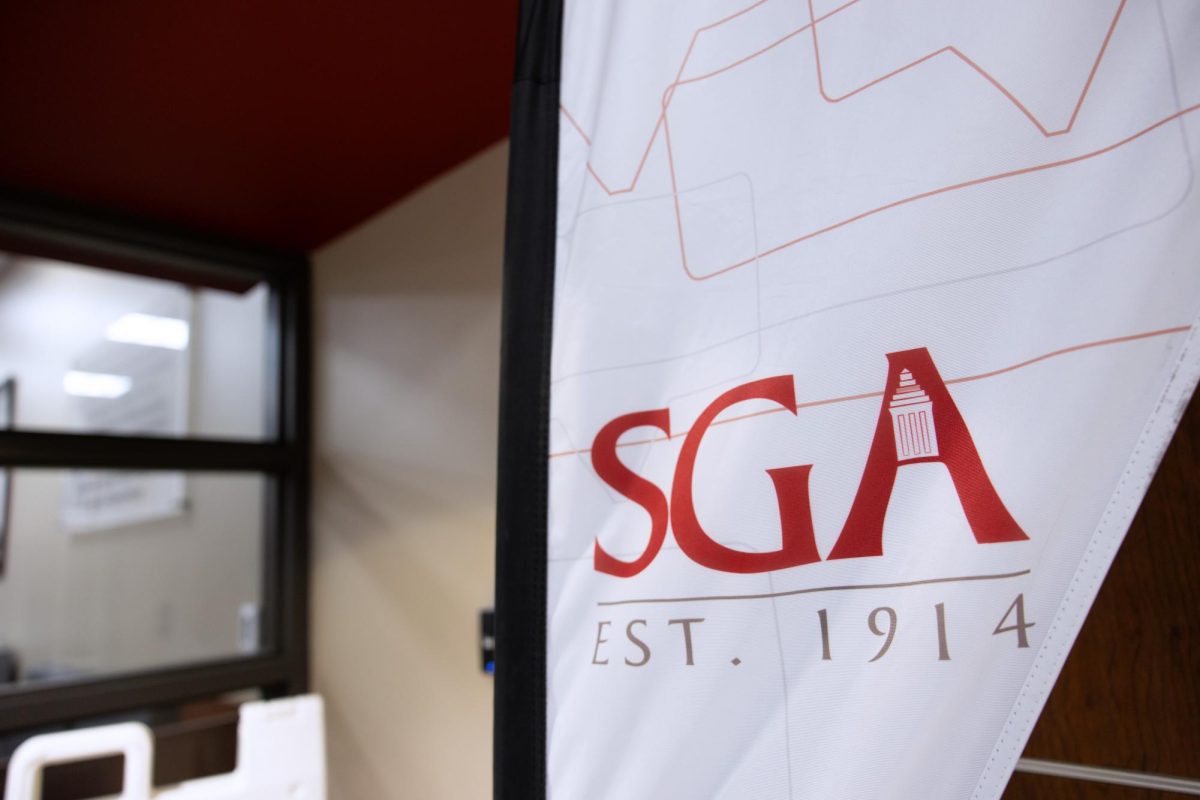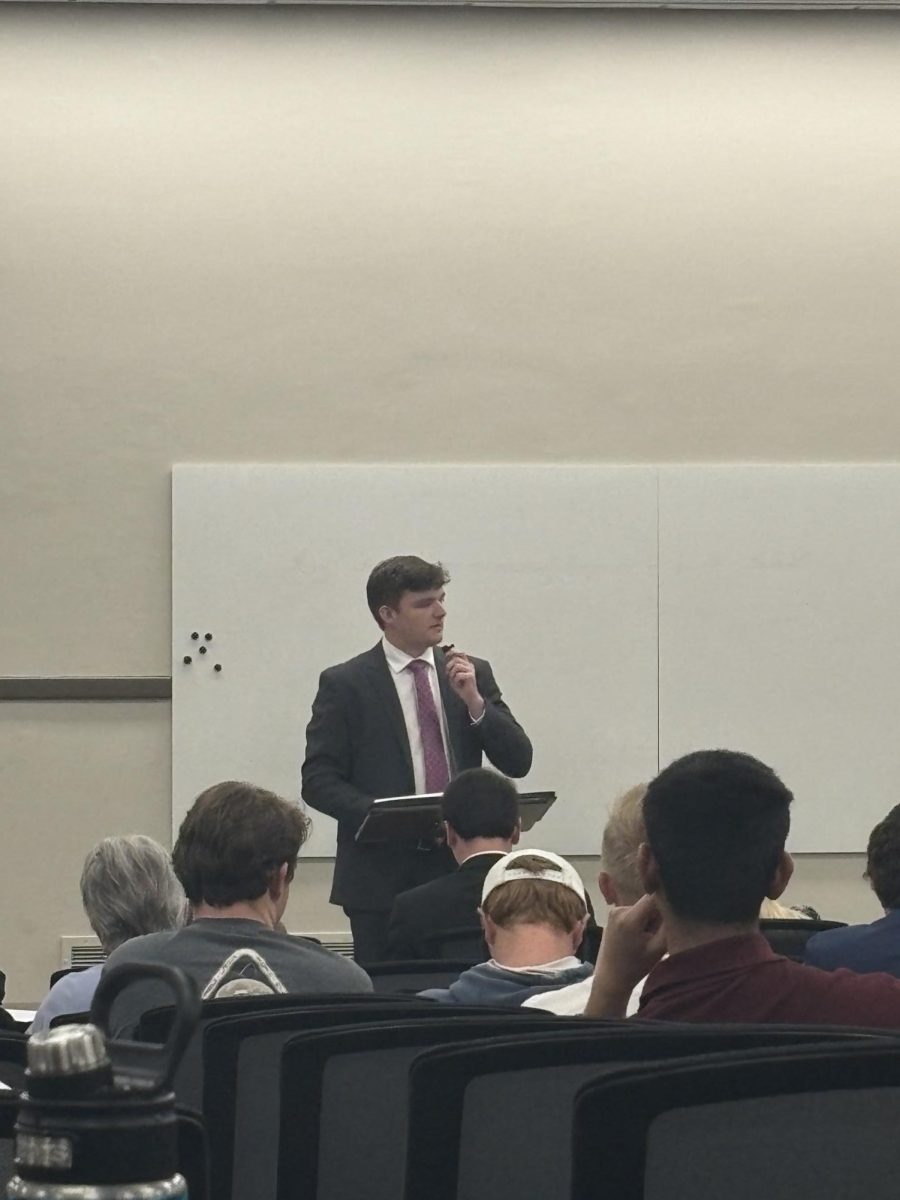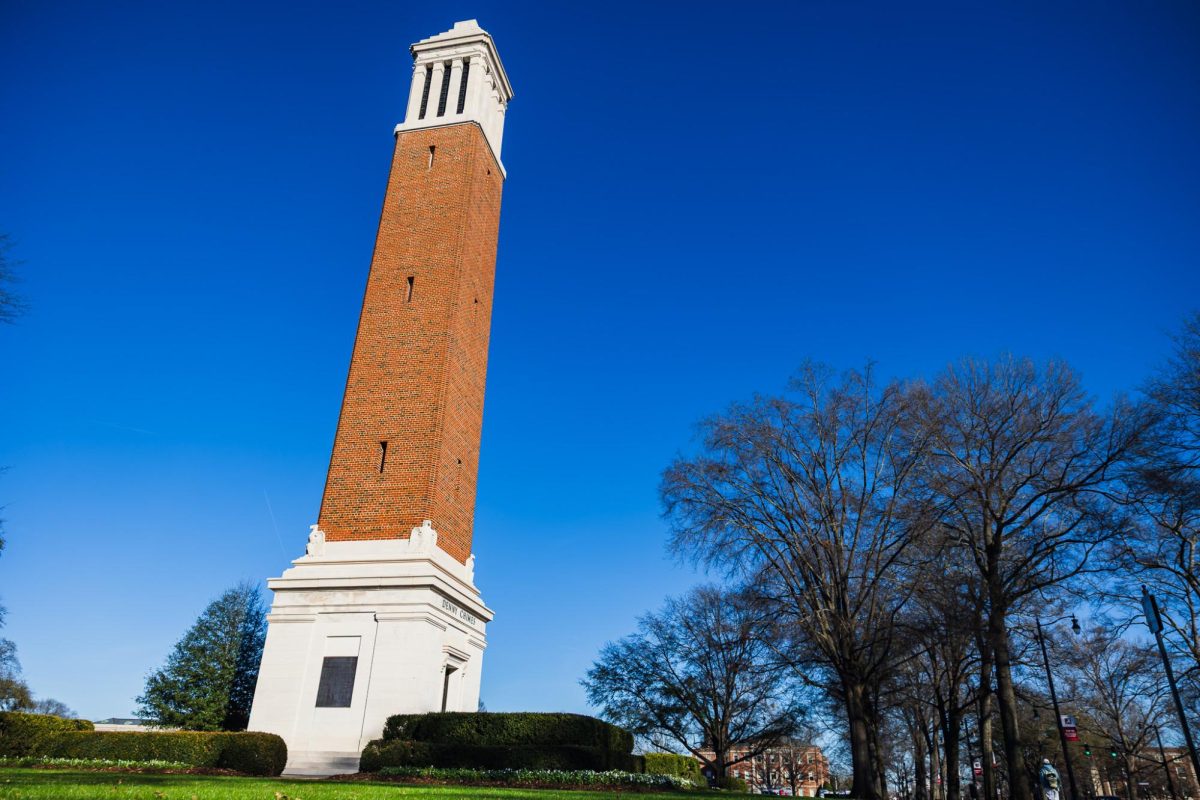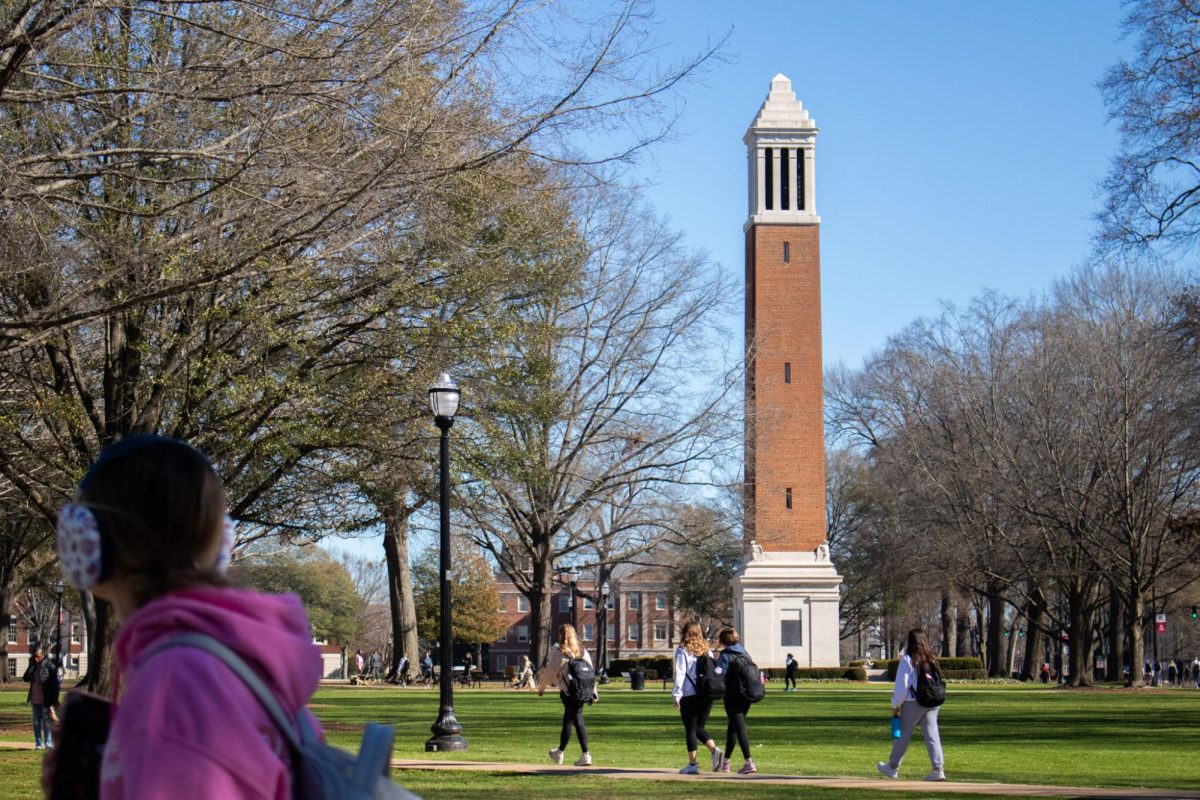Student organizations at the University regularly host high-attendance events on campus, but organizers are failing to keep up with costs, especially with catering. Leaders from student groups have pointed to the SGA’s Financial Affairs Committee as a source behind the struggle.
The FAC is a group within the SGA that provides key funding for student groups around campus. Eligible organizations can apply to be given up to $7,500 for a single academic year, which can be used to pay for events accessible to the student body. This amount is further divided into individual budgets for travel, equipment, events and other items.
“Any organization registered through MySource is eligible to apply for FAC funding,” said Lucas Weldon, SGA vice president for financial affairs, in an email.
The FAC said on its official website that its “mission is to support UA students’ out-of-classroom development, learning and engagement experiences by providing funding assistance to registered student organizations (RSO) for their project, event and travel efforts that benefit the UA student body as a whole.”
That money from the FAC has become all the more important now due to changes in specific student groups’ funding in the wake of SB 129, an Alabama state law passed just this year. SB 129 bans public colleges and boards of education from spending state money on DEI programs or on any program that supports a “divisive concept.”
The University recently shifted student organization funding to be through FAC funding almost entirely, removing grants like the Source collaborative grant and University Programs event grant, which previously supplemented FAC funding. The University did not make these changes known to many student leaders, sparking frustration among some.
“We usually ask for the University Programs and Collaborative [grants]. Now all those grants are closed,” said Pratiksha Chaudhari, president of the Indian Students Association of Tuscaloosa.
The ISAT is dedicated to showcasing Indian culture on campus, and hosts many events per year, including celebrations for Diwali, the festival of lights, and Holi, the festival of colors. Last year’s Diwali festivities had over 700 attendees, and the ISAT’s weekly Coffee Hours can bring in as many as 300 guests, Chaudhari said.
“All our events are free of cost for all faculty, students and staff on campus and in the community as well,” Chaudhari said. “We usually serve Indian cultural food at the events, too.”
Catering for events as large as the Diwali festival is especially challenging for the ISAT, she said. Of the $7,500 given to organizations each year in FAC funding, only $2,000 can be spent on “cultural food.” That is less than the cost of a single student’s semester meal plan, and with food prices rising an average of 5% yearly according to the U.S. Department of Agriculture’s Economic Research Service, that buying power is only getting smaller.
While the funding maximum of $7,500 did not change with SB-129 compliance changes, the University, which budgets money to FAC, appropriated $70,000 more this year to the committee to give to student organizations, SGA press secretary Morgan Patrick previously said.
The rest of the $7,500 cannot be allocated to food, according to FAC rules. Chaudhari said that, usually, the rest of the money goes largely unused by the ISAT.
Chaudhari said that, in her time as a student since 2020, the $7,500 total FAC allotment and $2,000 budget for food have remained unchanged. “$2,000 is not enough at all,” she said.
Chaudhari said that the ISAT considered charging for food but that it would make them ineligible for FAC money.
“They [The African Students Association] have the same problem. They have to do their program outside the University, and they charge people,” Chaudhari said.
Other organizations have been grappling with funding difficulties as well.
“I think one thing that us and ISAT have in common is that we really try to put on big events for our members, ” said Julia Dominguez, president of the Hispanic-Latino Association.
The HLA recently hosted its La Gozadera celebration of Hispanic Heritage Month, but struggled with logistics and funding. “We didn’t find out until two weeks before the scheduled date that [FAC] couldn’t help us fund anything. … We couldn’t spend [money] on food because we already had another event that the cultural food, the $2,000, was going to,” Dominguez said.
La Gozadera also featured collaborative tabling from the Caribbean Students’ Association, among other organizations. The influx of tabling during these events was purposeful.
“Every event is like, ‘who can we collaborate with on this event, just so we can get something more than the FAC?’” said CSA events coordinator Alex Aguillon. “Because other than FAC, that’s it. It’s the $500 collaborative grant.”
But even that money is off the table now that the collaborative grant is closed. Both Dominguez and Chaudhari said they had tried to reach out to SGA for help with FAC funding because they are the only ones who can vote on changes.
“I have contacted [SGA] a couple of times. Other organizations contacted them a couple of times too, but I’m not sure if the Financial Committee is taking that seriously or not,” Chaudhari said.
Weldon said that to his knowledge, “there have been no formal expressions of needs that FAC is unable to provide for.”
The ISAT hosts its annual Diwali celebration this year on Nov. 7, but the finances are tight, Chaudhari said.
“Our Diwali budget last year was $11,000, and this year we are seeing we don’t have that much,” Chaudhari said.
Still, the leaders of CSA, HLA and ISAT remain committed to hosting big events and celebrating in spite of the budgetary constraints.
“It’s so easy to become dejected and to feel hopeless and to feel like ‘I can’t do this. … I’m just a student,’” Dominguez said. “I think, within that, there’s power because you find solidarity and community with other students. We can’t let it stop us.”
Editor’s note: This article was updated Oct. 27 to correctly state the date of the Indian Student Association of Tuscaloosa’s Diwali event and last year’s budget for the event. The event is scheduled for Nov. 7, not Nov. 3, and the budget last year was $11,000, not $1,000.



